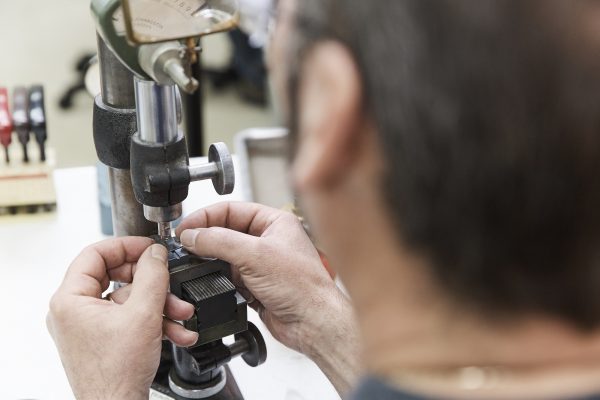AS9100 Precision Manufacturing
AS9100 Quality Standards
ISO (International Organization for Standardization) introduced its first quality management standard in 1987. Since then, it and other organizations have been updating standards to match new technologies and needs. ISO 9001 is the current standard, the most current revision being ISO 9001:2015. Aerospace suppliers realized that the QMS (Quality Management System) they used was not sufficient for their customers’ needs. They implemented their own policies to meet these needs, which led to companies using dozens of different systems. Industry leaders came together to create an aerospace standard based on ISO 9001, calling it AS9000 which evolved into the current AS9100 standard. It is much more customer-driven and AS9100 manufacturing facilities must excel in areas such as delivery performance, quality/scrap, and corrective actions.
The International Aerospace Quality Group (IAQG) maintains records and updates the AS9100 standard. Annual audits ensure that companies are meeting the standards, and companies have to recertify every 3 years. An accredited organization must conduct the audits, which then awards a certificate if the company passes. There is also a database wherein aerospace companies can find AS9100 manufacturing facilities and view their background.
Benefits of AS9100 Facilities
Manufacturing facilities that have an AS9100 certification are held to a higher standard of quality management. Almost every process and document must be process and revision-controlled. Multiple checks are required in manufacturing and processing parts, ensuring that they meet the specifications. If a facility ships a bad part to a customer (or even not disposed of properly), they note it in the IAQG OASIS (Online Aerospace Supplier Information System) portal. Companies also report any audit findings in the portal. The OASIS portal tracks other metrics as well, such as on-time delivery.
Customers use this portal to identify suppliers, meaning that they have access to the manufacturer’s past audit results and manufacturing defects. The regular audits and necessary reporting ensure manufacturing facilities comply with safety and manufacturing standards. Even if a company isn’t working with aerospace parts, choosing an AS9100 certified supplier will increase quality standards.
AS9100 Precision Manufacturing

Because it is an aerospace standard, many companies that are AS9100 certified work with precision machining. These companies can often hold tolerances down to around .0005″ (.0127mm). However, on critical parts, these tolerances might not be tight enough. Gage-making companies can hold tighter tolerances, but not all gage makers do custom work and not many are AS9100 certified.
GLE Precision is an AS9100 certified grinding facility capable of holding tolerances down to .000003″ (.0762µm). We have decades of experience creating custom tooling and gaging, mainly in hard materials such as carbides, ceramics, and hardened steels. GLE has customers in the aerospace, medical, waterjet, semiconductor, and more industries. We are able to serve these industries with our precision tolerances, ability to make parts down to .002″, and finish surfaces as polished as 0.4 Ra µin (0.01 Ra µm). In November, we passed our annual audit with no findings, proving our dedication to quality.
Although not all of our customers require us to have AS9100 certification, they all benefit from it. We are known for our quality, ability to manufacture parts that few if any other facilities can produce, and customer service. We work with many industry leaders because of our capabilities and expertise to create the next big technologies. Contact us today if you are looking for a quality precision part supplier!

